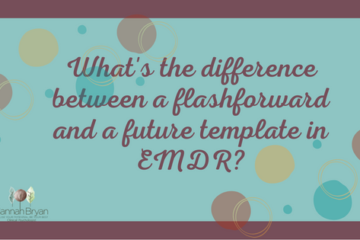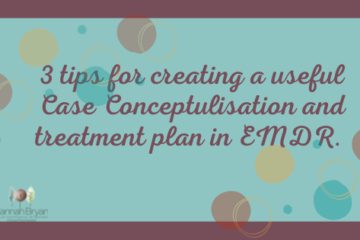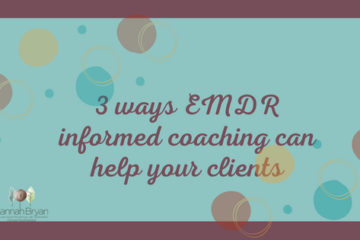If you want to think how you can get the most out of your EMDR supervision sessions, please read ahead.
When I think about me receiving supervision there are 2 main things that I want from it. I want to feel contained, supported, that it is safe to be vulnerable and talk through difficulties. After supervision I want to have some ideas of what I can do to help and serve people better. I would often can go into supervision feeling dark, heavy, unsure. Especially so in the early days of learning a new therapeutic model such as EMDR.
Be prepared

As a history student at school that the teacher had written above her board “Fail to prepare, prepare to fail”. There’s definitely something in that! So have some refelction time after sessions with a client. If there were stuck points, questions that I had, I need to make a note of it. Because if I don’t write it down I forget!! So open up a google doc, jot down ideas after you see your clients and those key issues that come up. I often find myself thinking I’ll take that to supervision and then the question has somehow been lost from my mind! Anyone else have this kind of experience?
Bring a specific EMDR related question.

What I always ask my supervisees to do is come with an EMDR specific question about the client ie. ‘Safe place isn’t helping” “I think we are looping in the process” “the VOC isn’t increasing.”
My hope is that supervisees come with a problem and leave with a toolbox full of different strategies or techniques. They can try these with their clients to move the therapy in the right direction.
One thing that’s often difficult in supervision is that you are trying to convey to your supervisor hours of clinical work with a client. So it’s often helpful to bring to supervision your case conceptualisation and treatment plan.
I can recall in some of my supervision sessions spending most of the time giving my superviser all the clinical info I have got on the client. It felt I need to share it all. I had this anxiety that I would miss that one important part of the story. If my supervisor heard that they would know exactly what I needed to do😂 Anyone else have this thought?
Bring recordings of your sessions
I always encourage my supervisees to bring recordings of their sessions. Everyone has to do this as part of the journey towards Accreditation but it’s a big block for many people. But how often do we as therapist encourage our clients to sit with the difficult emotion. Knowing that something good will come from it? Well that’s exactly the same as what we need to do with ourselves as therapists. We have to sit with the difficult emotions and know that this to shall pass and it will get easier. The depth and quality of the supervision when recordings are bought always amazes me. We can spot things that could be changed to have a positive impact on your EMDR within moments. 10 minutes of watching a recording of a session covers what would take us over an hour to cover just by talking through your client work.
Document your progress
Most of my supervisees are working toward EMDR Accreditation. I think it’s helpful to set aside a few moments after supervision to document a few key things about the supervision session. What clients were discussed? Did you have some ideas and options that would help the client? What competencies were reflected on and demonstrated to my supervisor? Many people I work with use my Demystifying the Accreditation workbook to record this information. You can find out more about that here. It just makes life easier if you document it as you go along.



0 Comments